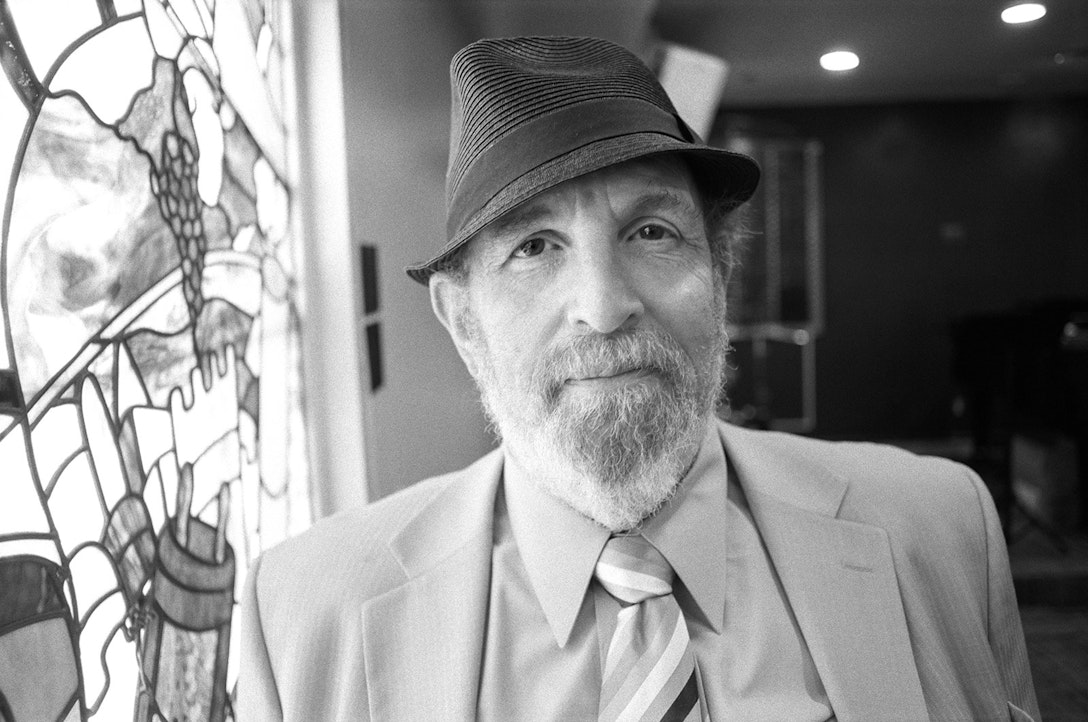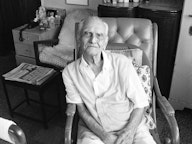
Rabbi Mark Borovitz
Los Angeles, California, USA
I FELL IN LOVE WITH CRIME
My father had died of a heart attack. I started to sell merchandise from my barber. I sold merchandise from my barber that was stolen, and that's how I made money. And I helped out at home, I helped out other people. I just fell in love with doing crime. I think I lost respect for a lot of things. I was living two lives ’cause I was still going to temple, and I was president of my United Synagogue Youth group. So I lived this split existence. I knew it was split but it didn’t seem out of the ordinary to me. I knew what I was doing was morally wrong and I equated net worth to self-worth.
In 1986, when I was arrested, I called my first wife and told her to pick up some money—I hadn’t talked to her in a month—some money that I had on me. She asked, ‘What bail bondsman do you want me to call?’
And I said, ‘Don’t call anybody. The man upstairs is trying to tell me something and I have to sit here ’til I can figure it out.’ I have no idea where those words came from. They just fell out of my mouth which are usually the best things I say. I say that that was my spiritual awakening; that was my reconnection with God in a positive way.
I called my brother who is a rabbi. I said to him, I said, ‘Send me a Chumash [Torah as a book] and a siddur; a prayer book.’ And he did. I have literally studied every day since then. A day doesn’t go by that I don’t read some text; some prayer. I started the Torah from the beginning. And I realized a lot of things. I just got a lot of different hits. And then reading the story of Jacob of course gave me hope, because Jacob was a con man, a cheat, a liar, and a thief. And he did his t’shuva [repentance], and that gave me the hope that I could change.
Daniel’s Reflection
Mark Borovitz, long before he became a rabbi, fell in love with crime. He was president of his Jewish youth group in high school and, at the same time, he was selling stolen goods for his barber. He knew he was leading a split life but it hadn’t caught up to him yet. As an adult, he landed as an inmate in the California state prison system several times. On the third such time, he had an experience that “the man upstairs” was trying to tell him something and he needed to figure it out. So he called his brother who was a rabbi and asked him for a prayer book and a Torah/Chumash (the five books of Moses). He started studying and developed a hope he had not had previously.
The forces of the Universe were to bring even better changes his way. He connected with Harriett Rossetto, a social worker who had just started Beit T’Shuvah, a halfway house for Jews exiting the California prison system. Mark went to work at Beit T’Shuvah and then he and Harriet became a couple. His journey led him to the Zeigler School of Rabbinic Studies and he was ordained a rabbi. For several decades, Harriet and Rabbi Mark ran Beit T’Shuvah together and grew it into a powerful force for healing addictions and giving people a new opportunity for clean living.
I became aware of Rabbi Mark through his best selling book, The Holy Thief: A Con Man’s Journey from Darkness to Light. I was so deeply moved that I reached out to meet him at Beit T’Shuvah in Los Angeles. After interviewing him, I also got to join in Shabbat services with the Beit T’Shuvah community and then a very special Saturday morning study session with the rabbi on the teachings of Abraham Joshua Heschel.
The lesson for me in meeting Rabbi Borovitz is the prayer he shared with me at the conclusion of his interview: “God help me return to my rightful place. God help me to have new responses in areas where I’ve gone astray. God, thank you for always wanting me back.” What a powerful idea: God always wants us back. No matter what we have done, we are always welcome back.
This topic of repentance is one where I so appreciate the Jewish tradition. In Hebrew, the word for repentance is t’shuvah, the very name of the institution Rabbi Mark co-led with Harriett Rossetto. T’shuvah literally means “return” and that is the Jewish concept of repentance—to return to our better selves and to return to halacha—the way of adhering to God’s commandments and way of life. In fact, someone who becomes religious in the Jewish tradition is referred to as a baal t’shuvah, one who has returned.
The great Rabbinic teacher Maimonides taught that there are three steps to repentance and confession in Judaism: 1) to acknowledge the sin, to literally say out loud “I have sinned,” 2) to feel remorse and ashamed for what was done, and, 3) to resolve to never do the sin again.
What is so compelling to me is that, in Judaism, I cannot be absolved of a sin through a member of the clergy. If the sin is against another person, I must go to that person and make amends. If the sin is against God (such as violating the Sabbath), then the repentance is done through prayer and the actions above. The level of personal responsibility is paramount.
Rabbi Mark Borovitz taught me many lessons: The power of t’shuvah. The power of love shared with Harriet Rossetto and their mission of healing. The commitment to a life of “returning” to our better selves.
REFERENCES & PERMISSIONS
Borovitz, Rabbi Mark. 2004. The Holy Thief: A Con Man’s Journey from Darkness to Light.
William Morrow.
Explore the portraits by theme
- happiness
- grief
- faith
- addiction
- sexuality
- sobriety
- transgender
- alcoholism
- suicide
- homelessness
- death
- aggression
- cancer
- health
- discipline
- abortion
- homosexuality
- recovery
- connection
- enlightenment
- indigenous
- depression
- meditation
- therapy
- anger
- forgiveness
- luminaries
- interfaith
- worship
- salvation
- healing

